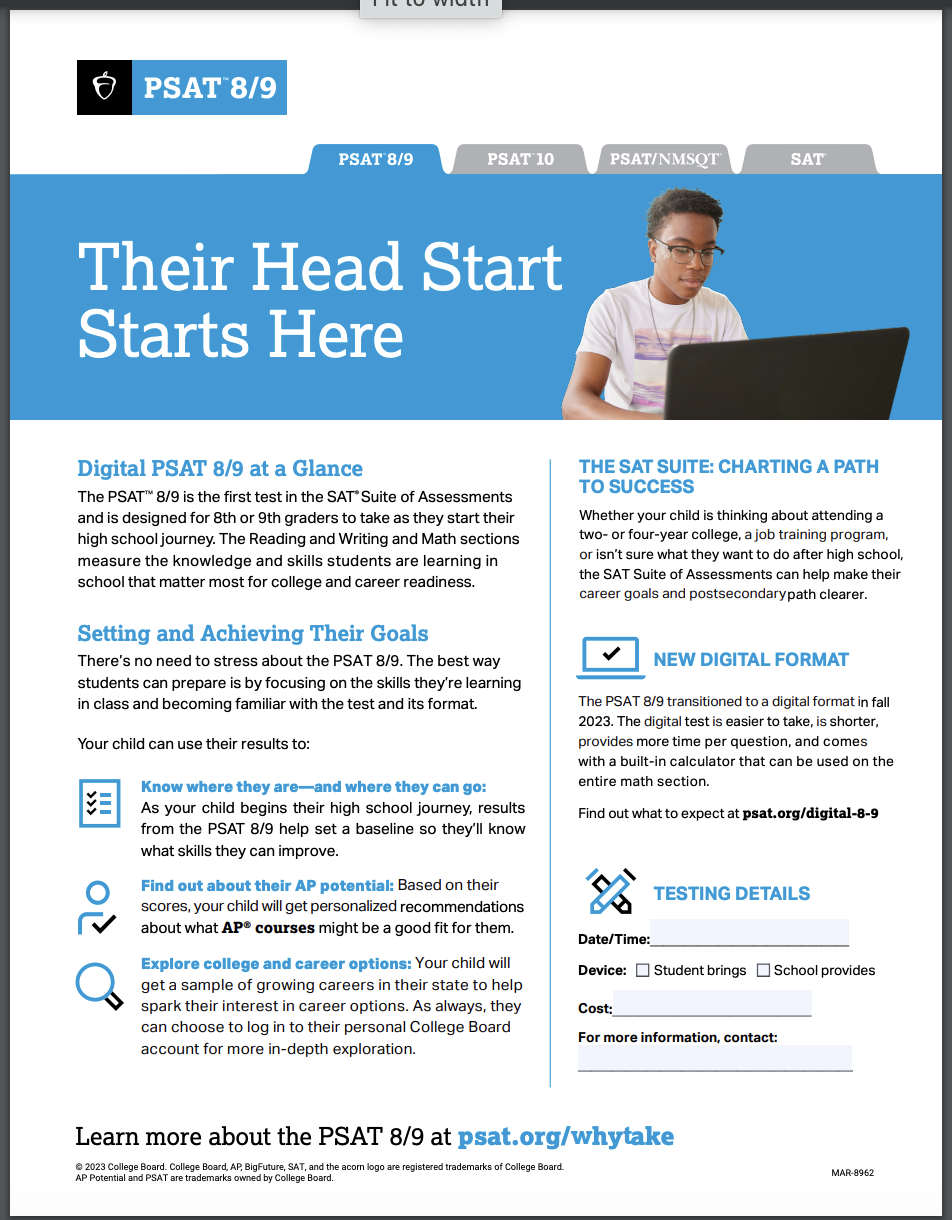Standardized Testing
PSAT 8
All 8th-grade students will participate in the PSAT 8 during the Spring. They will be assessed in the areas of ELA and Math.

MSTEP
The Michigan Student Test of Educational Progress, or M-STEP, is a 21st-century computer-based assessment designed to gauge how well students are mastering state standards. These standards, developed for educators by educators, broadly outline what students should know and be able to do in order to be prepared to enter the workplace, career education training, and college. When combined with classroom work, report cards, local district assessments, and other tools, M-STEP results offer a comprehensive view of student progress and achievement. For additional information, click State Assessment in Michigan: What it is, What it means - And What it Offers
7th Graders: Assessed in areas of Math and ELA.
8th Graders: Assessed in areas of Science and Social Studies
NWEA
7th and 8th Graders are assessed in the areas of Math and ELA 3 times per year.
The NWEA (Northwest Evaluation Association) is the educational non-profit organization responsible for the MAP assessment. MAP, which stands for Measures of Academic Progress, refers to tests given multiple times throughout a school year to measure your student’s growth in a variety of subjects.
Kindergarten through 2nd grade students are tested in reading and math, while students in 2nd through 12th grade test in reading, language usage, math, and science. The assessment also measures college and career readiness in older students.
How are the NWEA MAP Assessments conducted?
These online tests are typically given during the regular school day on three separate occasions – at the beginning, middle, and end of the school year. Of course, this year, that has looked a little different. School districts who have implemented NWEA MAP testing have been working hard to make COVID-friendly adjustments so that the assessments can continue to be administered in a safe way. The NWEA MAP website also features practice tests that you and your child can practice with before test day.
NWEA assessments are untimed, multiple choice tests. Further, they are adaptive, which means they change based on student answers. Since all tests are given electronically, the difficulty of the questions adjusts depending on how students answer.
For example, if a student answers a question right, the next question will be harder. If a student misses a question, the next question will be easier until the student answers one correctly. This feature allows the tests to pinpoint the achievement level of each student and helps teachers plan intervention for struggling students or enrichment for students who have mastered grade-level content. Even with distance learning, teachers are able to differentiate instruction to meet all students’ needs.
These tests are used for a variety of instructional purposes. First, they offer an initial screening to get a general sense of a student’s performance. The NWEA platform then offers several tools for progress monitoring, growth measurement, and proficiency projection. They also assess skills mastery and provide teachers with research-based interventions to target specific skills or learning gaps.





